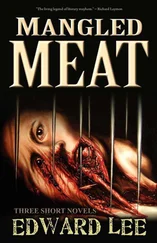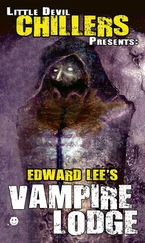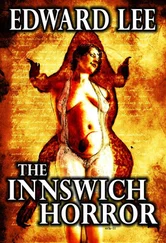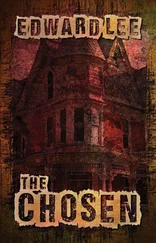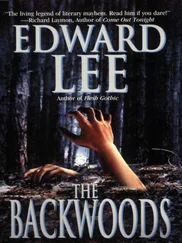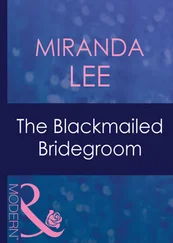The blonde left; then Jiff stepped up and deposited his check. “Guess you’ll be stoppin’ by Cusher’s for lunch, huh?”
“As a matter of fact I am. I’m going to write up the lager in my book and I need Dominique to sign a release form.”
Jiff grinned over his shoulder and winked. “It’s a mighty fine beer, but you know, Mr. Collier, my mom makes her own spiced ale on occasion. I’m sure she’s still got plenty in the fruit cellar, and I’m double- sure she’d love for you ta try some.”
He’s trying to fix me up with his sixty-five-year-old mother again. Collier squirmed for a response. “Oh, really? That’s interesting. I enjoy homemade ales.” But, sixty-five years old or not, he still remembered that body of hers, in the peephole— Man… —then the odd notion that Mrs. Butler herself had drilled that hole…“You’re welcome to join me for lunch,” he added, if only to blot out the image of the plush, large-nippled breasts all glimmering in lather.
“Aw, thanks much, Mr. Collier, but I still got some fix-it jobs around town ’fore I head back to the house.” He flashed a final grin. “But you have a fine day.”
“You, too, Jiff.”
Jiff strode off, whistling like a cliché. Collier took money out of the machine and continued into town.
A quick look into Cusher’s showed him a full house and full bar. Shit. I’ve got to get a seat at the bar, otherwise I won’t get to talk to her …The lunch crowd looked heavy everywhere, so he decided to kill some time roving in and out of some knickknack shops, tourist crannies, and the Gast Civil War Museum. On the corner, then, he noticed the bookstore. Might as well go in now and see if I can run down J.G. Sute…
A bell jingled when he pushed through the door. It was a small, tidy shop, with more tourist buttons, shirts, and related trinkets than books. Several browsers milled about but none of them could be Sute. Jiff said he was close to sixty …Collier shouldered into a cove and found it full of Civil War tomes, mostly pricey picture books. Wouldn’t mind picking up a few books on Gast, though, he told himself. One shelf was filled end to end with the same title: From Branch Landing to Gast: A Local History . The author was J.G. Sute, but, No way! Collier rebelled. The downsized hardcover was fifty dollars. Another book, more like a trade pamphlet, showed the title, The East Tennessee and Georgia Railroad Company , also by Sute. The same title filled the next shelf: Harwood Gast: A Biography of Gast’s Most Sinister Figure . It was very thin, but, That’s more like it, he thought of the five-dollar price tag. It was not a quality printing, and the photo-plate section looked xeroxed, but as Collier flipped through he found some curious tintypes of the town in the 1850s and through to the end of the war. One plate, of Gast himself, Collier found chilling in the way the subject’s eyes seemed to burn through the photo’s fuzzy surroundings. The well-dressed, mutton-chopped plantation baron looked exactly like the huge portrait in the atrium. Another plate showed a sturdy wooden building with the text below: THE FIRST BANK OF GAST. I was just there, Collier thought. An opposite daguerreotype was devoted to MR. WINDOM FECORY: HARWOOD GAST’S CONTROVERSIAL BANKING OFFICER. What could be controversial about him? Collier wondered with a smirk, but the more he appraised the picture—a wiry, thin-faced man with a peculiar nose—the creepier he found the image. One surprisingly clear plate showed Mrs. Penelope Gast standing elegantly beside one of the house’s entrance pillars; she looked demure and beautiful in an elaborate bustle dress and corsetlike top. The cleavage in the lowcut top couldn’t have been more apparent. What a rack! Collier admitted.
The little book hooked him. I’m buying this, he knew, but as an author himself he flipped instinctively to the copyright page, to see who the publisher was. Not a good sign, but I’m still buying it, he resolved. The publisher was listed as J.G. Sute Publications.
“Let me guess what you’re thinking,” a crisp yet deep baritone Southern voice surmised. Sun from the front window reduced a wide figure to shadow. “You’re thinking that it must not be any good since it’s self-published.”
“I—”
“But I can assure you, sir, that the author has no resort since all respectable publishing houses found the subject matter too controversial.”
Collier, caught off guard, stepped aside and found himself facing a short, obese man in a tweed sports jacket with patches on the elbows. Balding, stout-faced, but with eyes that seemed serious and credible…and a white-gray mustache and Vandyke that reminded Collier of Colonel Sanders. It was the same man on the book’s back cover. “Oh, you must be J.G. Sute. I’ve actually been looking for you. I’m Justin—”
“Justin Collier,” the deep voice replied. “When a celebrity comes to town, I’m the first to know. Very pleased to meet you.” He offered a soft but large hand. “I have seen your beer show several times but I’ll have to admit, I’m more of a wine and scotch man myself. And you say…you’ve been looking for me? ”
“Yes, yes,” Collier returned and quickly got the Internet printout from his wallet. “It’s actually this piece you wrote that got me here.”
Sute looked at it and seemed pleased. “I do a lot of freelancing for local papers and the tourist Web sites. Oh, you mean my reference to Cusher’s?”
“Right. And I’d just like to thank you because their lager turned out to be just what I needed to finish my current book.”
Now the wide, squat man seemed to grow a few inches from the compliment. “I’m flattered my little piece could be of service. So…if you don’t mind my asking, who’s the publisher for your book?”
“Random House,” Collier said.
Mr. Sute’s extra inches dropped back down very quickly. “Well, regrettably, I’ve never been published by so lofty a house but ”—he pointed to the fifty-dollar edition—“that one there is my pride and joy. Published by Seymour and Sons, in Nashville. It’s sold a thousand copies so far.”
Collier got the gist. The poor sap’s just a hack and I’m rubbing Random House in his face. He decided to bite the bullet, and he took a copy down. “I planned on buying that one, too. Would you sign it for me?”
Sute blustered. “I’d be honored.”
“I’ve only been here a day but I’ve become enthralled by all the local color. Harwood Gast and his railroad, for instance.”
“It’s quite a story, and as I was saying previously, a little too harsh a story for the big publishers. I’ve had to publish several on my own for the same reason—”
“Too harsh? ”
“—and I don’t think I’m being conceited to say that I am the only true expert on the local color and history of this town. All my works are based on original letters, photos, and estate archives. This one, for instance”—his finger gestured another slim paperback, entitled Letters of Evidence: The Epistemological Record of Gast, Tennessee —“and it’s only five dollars.”
Collier took down a copy. “I’ll be digging into all of these soon, thanks. But I was also wondering, since you write for tourist and dining sites, are there any other brew pubs or regional taverns in the area? What I’m looking for are more places that might specialize in regional beers based on old recipes.”
Sute seemed downtrodden that he could offer no more expertise. “Not really, I’m afraid. The South is more known for whiskey and mashes. There are a few taverns in Chattanooga that brew their own beer but I think it’s more faddish than authentic.”
Читать дальше

